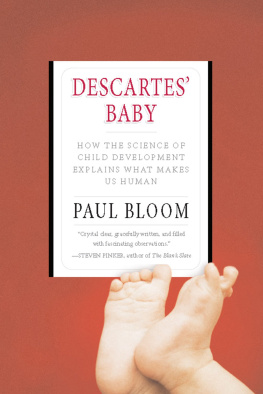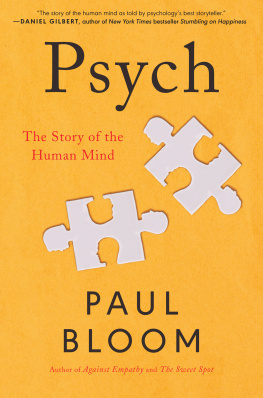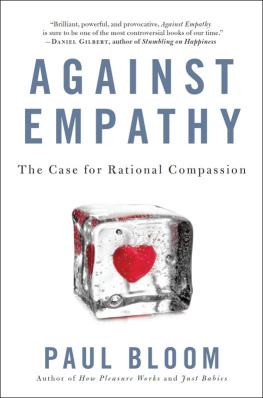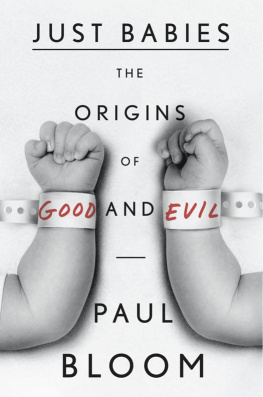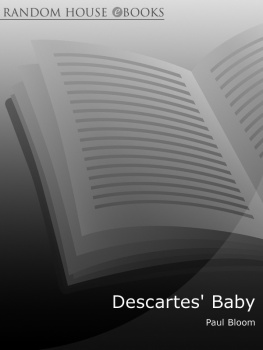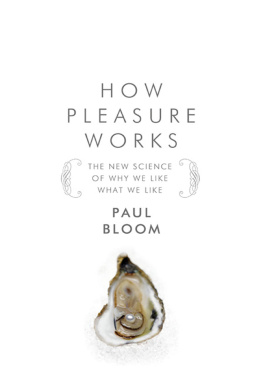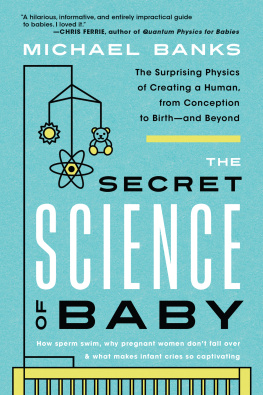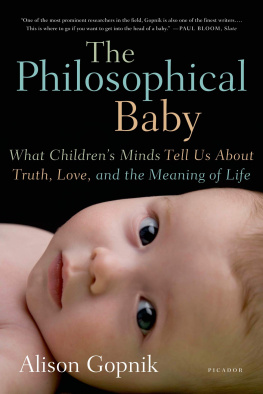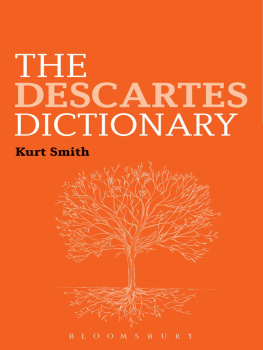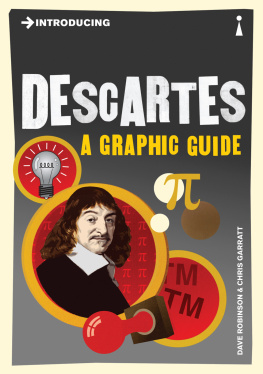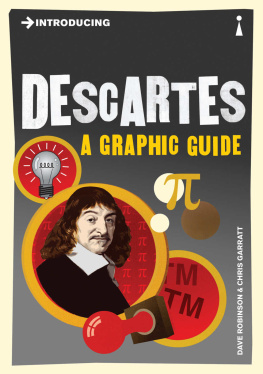CONTENTS
ABOUT THE BOOK
Why is a forgery worth so much less than an original work of art? Whats so funny about someone slipping on a banana peel? Why, as Freud once asked, is a man willing to kiss a woman passionately, but not use her toothbrush? And how many times should you baptize a two-headed twin? Descartes Baby answers such questions, questions we may have never thought to ask about such uniquely human traits as art, humour, faith, disgust, and morality.
In this thought-provoking and fascinating account of human nature, psychologist Paul Bloom contends that we all see the world in terms of bodies and souls. Even babies have a rich understanding of both the physical and social worlds. They expect objects to obey principles of physics, and theyre startled when things disappear or defy gravity. They can read the emotions of adults and respond with their own feelings of anger, sympathy and joy.
This perspective remains with us throughout our lives. Using his own researches and new ideas from philosophy, evolutionary biology, aesthetics, theology, and neuroscience, Bloom shows how this way to making sense of reality can explain what makes us human. The myriad ways that our childhood views of the world undergo development throughout our lives and profoundly influence our thoughts, feelings, and actions is the subject of this richly rewarding book.
ALSO BY PAUL BLOOM
How Children Learn the Meanings of Words
Language, Logic, and Concepts
(co-editor)
Language and Space
(co-editor)
Language Acquisition: Core Readings
(editor)
DESCARTES BABY
How the Science of
Child Development Explains
What Makes Us Human
PAUL BLOOM
For Karen
Since the eighteenth century, there has been in circulation a curious story about Descartes. It is said that in later life he was always accompanied in his travels by a mechanical life-sized female doll, which, we are told by one source, he himself had constructed to show that animals are only machines and have no souls. He had named the doll after his illegitimate daughter, Francine, and some versions of events have it that she was so lifelike that the two were indistinguishable. Descartes and the doll were evidently inseparable, and he is said to have slept with her encased in a trunk at his side. Once, during a crossing over the Holland Sea some time in the early 1640s, while Descartes was sleeping, the captain of the ship, suspicious about the contents of the trunk, stole into the cabin and opened it. To his horror, he discovered the mechanical monstrosity, dragged her from the trunk and across the decks, and finally managed to throw her into the water. We are not told whether she put up a struggle.
Stephen Gaukroger,
Descartes: An Intellectual Biography
PREFACE
Sex with dead animals is disgusting. Someone slipping on a banana peel can be wildly funny. Killing babies is wrong. Splashes of paint on a canvas can be a work of art. Your body will change radically as you age, but you will remain the same person. And when you die, your soul may live on.
There are people who lack these basic notions, such as psychopaths who commit horrific acts without the slightest twinge of conscience, or severely autistic children, who have no understanding that other people have thoughts and emotions. But these unusual cases just prove the rule that notions such as morality, humor, art, and personal identity are aspects of the normal human condition.
How can we best explain this? Some scholars argue that these human characteristics are evolutionary adaptations are not themselves adaptations. They are the by-products of adaptationsbiological accidents.
I will explore Darwins approach here. In particular, I will suggest that humans have evolved a certain way of thinking about people and objects. We see the world along the lines proposed by Ren Descartes, the father of modern philosophy.
Descartes was fascinated by the automata of his time, such as the hydraulically controlled robots at the French Royal Gardens that moved in realistic ways, acting as if angry or modest. He believed the bodies of humans and animals to be nothing more than particularly intricate machines. But for peopleunlike for nonhumans, whom Descartes described as beast-machinesthere is a crucial distinction between res extensa, our physiological machinery, and res cogitans, which is our selves, our minds. We use our bodies to experience and act on the world, but we ourselves are not physical things. We are immaterial souls.
We can explain much of what makes us human by recognizing that we are natural Cartesiansdualistic thinking comes naturally to us. We have two distinct ways of seeing the world: as containing bodies and as containing souls. These two modes of seeing the world interact in surprising ways in the course of the development of each child, and in the social context of a community of humans they give rise to certain uniquely human traits, such as morality and religion.
The effect that our dualism his fascination with automata. But the stories all end the same way, with the horror of the sea captain and the destruction of the machine.
There is something that many find disturbing, even revolting, about the notion of a soulless body, a purely physical creature that acts as though it were a person. This reaction is worrisome, given the scientific consensus that Descartes was mistaken. Modern science tells us that the conscious self arises from a purely physical brain. We do not have immaterial souls; we are material beings, no less than the monstrosity drowned by the captain. We are Descartes babies.
I begin by laying out the foundations of infants mental development, showing that before they can speak or walk or control their bowels, babies see the world as containing both physical things, which are governed by principles such as solidity and gravity, and immaterial minds, which are driven by emotions and goals. Babies are natural-born dualists.
Chapters 2 and 3 show how our duality of perception shapes how we make sense of the artificial and natural world. It helps explain why even children are prone to believe in a divine creator. And it explains some mysteries concerning our appreciation of art, such as why we take so seriously the difference between a forgery and the original and what distinguishes a work of art from everything else.
I then turn to how our intuitive dualism underlies our feelings toward other people. Chapter 4 concerns the emergence of moral sentiments in babies and children, and chapter 5 discusses the growth of the moral circle, the universe of beings encompassed by our developed moral sense. I present a theory of the emergence of a uniquely human morality, and discuss how certain forces can enhance, nourish, and solidify our evolved moral sense, transforming it in profound ways.

